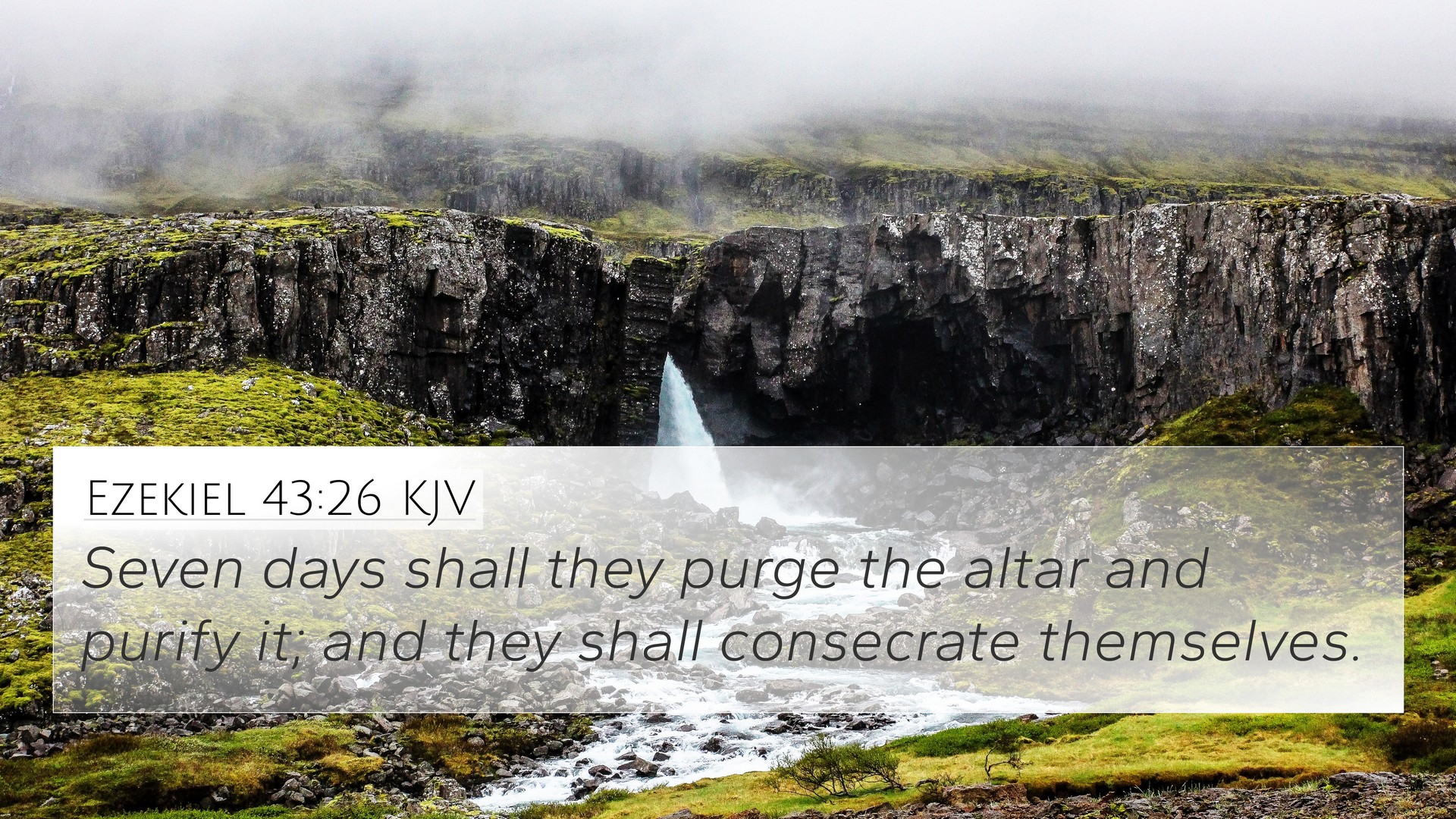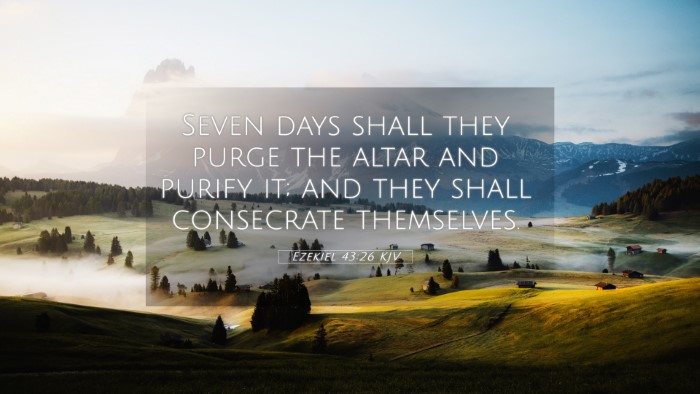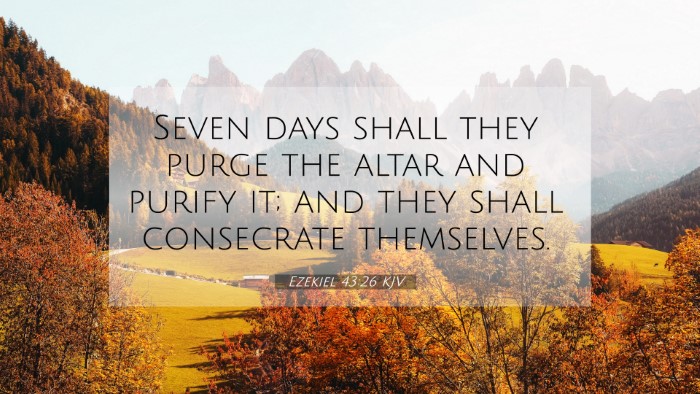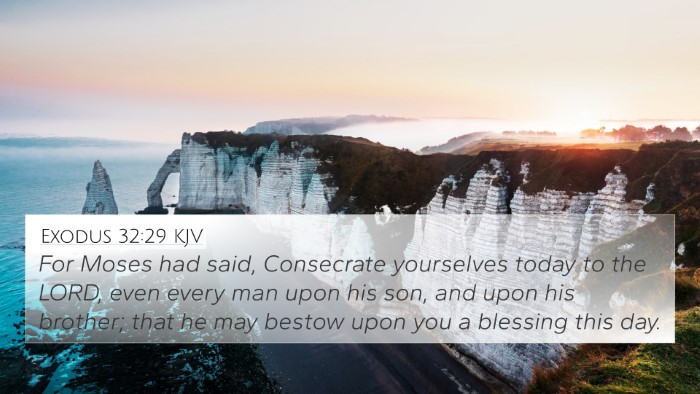Ezekiel 43:26 - Meaning and Interpretation
Ezekiel 43:26 states, "And seven days shall they purge the altar and purify it; and they shall consecrate themselves." This verse not only highlights the rituals of purification and sanctification but also emphasizes the seriousness of the covenant between God and His people.
Summary of Insights
The insights drawn from various public domain commentaries, including those by Matthew Henry, Albert Barnes, and Adam Clarke, reveal profound interpretations concerning the significance of purification and consecration in the context of God's holiness and the worship of His people.
Key Themes Explored
- The Ritual of Purification: The seven days of purging the altar reflects a complete and thorough preparation for the reestablishment of worship. It signifies a period of divine cleansing.
- Consecration and Holiness: The emphasis on the priests consecrating themselves underscores the necessity for holiness in worship. As expressed by Matthew Henry, this is crucial for accepting the sacrifices presented to God.
- Symbolism of the Number Seven: The use of seven days symbolizes completion and perfection, suggesting that the worshipper must be fully prepared before approaching God.
Cross-References and Thematic Connections
Understanding Ezekiel 43:26 benefits from cross-referencing with several other scripture passages. Here are some relevant Bible verse connections:
- Exodus 29:36-37: Discusses the consecration of the altar and the importance of purity in offerings.
- Leviticus 8:33-36: Highlights the sanctification of Aaron and his sons, drawing parallels with priestly duties in the new temple.
- Hebrews 9:14: Explains how the blood of Christ serves to purify the conscience, relating to the theme of cleansing in Ezekiel.
- 1 Peter 1:16: Calls believers to be holy as God is holy, emphasizing the need for spiritual purity.
- Psalm 24:3-5: Addresses who may ascend the hill of the Lord, indicating the prerequisites of purity and righteousness.
- Isaiah 6:5: Offers a vision of God's holiness and the immediate sense of unworthiness before His presence, which requires purification.
- James 4:8: Encourages believers to draw near to God, cleansing their hands and purifying their hearts.
Understanding Purification Today
In contemporary Christian practice, the principle of cleansing and preparing oneself for worship continues to resonate. The themes in Ezekiel 43:26 can be seen in the rituals of baptism, confession, and personal reflection aimed at spiritual readiness.
Conclusion
The ritualistic aspects highlighted in Ezekiel 43:26 reveal God's demand for holiness and proper preparation for communion with Him. The connections between this verse and others add depth to our understanding of purification, sacrificial practices, and the overarching theme of divine holiness found throughout Scripture.
Tools for Further Study
For those interested in deeper enrichment, various tools for Bible cross-referencing can be very helpful:
- Utilize a Bible concordance for locating references and related verses.
- Explore a Bible cross-reference guide to navigate thematic connections.
- Engage in cross-reference Bible study to understand the implications of purification and holiness across both Testaments.
- Learn how to use Bible cross-references for effective study methods.
- Seek out comprehensive Bible cross-reference materials for an in-depth exploration of connections.
Additional Insights
As you continue your study, consider the inter-Biblical dialogue that unfolds when comparing the teachings of the prophets with those of the New Testament apostles. This exploration reveals the cohesive narrative of God's redemptive plan through purification and consecration, ultimately culminating in the work of Christ.
Reflection
As you meditate on Ezekiel 43:26, it is vital to contemplate how the principles of ritual purification and consecration apply to your life. Reflect on the ways in which you can prepare your heart and spirit to approach God with reverence and sincerity.





